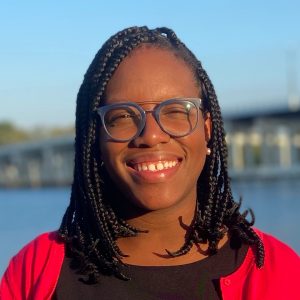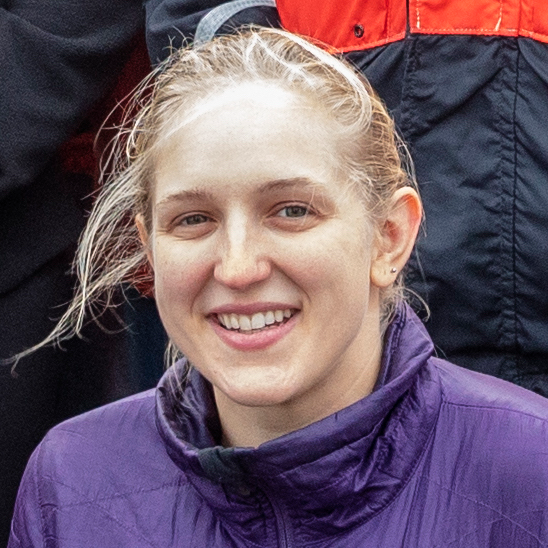OCEANOGRAPHY
STUDENT NEWS
FROM THE REP
Transitions are on my mind a lot lately. The seasons are changing, there was just a major election in the United States, and I am transitioning out of graduate school. For many of us, our work/school life has been fluctuating between in person and remote, and this might be accompanied by changes in our housing.
Some people find transitions to be exciting, full of novel experiences and ripe with potential. While I do like the feeling of new beginnings, I don’t like all of the uncertainty. Here are a few suggestions to make transitions easier:
1. Create structure however you can. Setting and keeping some commitments to yourself helps your brain cope with uncertainty. I don’t know when I’ll move into a new apartment, but I can make sure I eat meals at regular times and go for a walk every day.
2. Ask for and receive support. Find a few people who you can trust, and tell them how you’re doing. If they offer to do something for you or to provide moral support, accept their help. We don’t have to do things alone.
3. Practice imagining the best possible outcome. In times of uncertainty, it’s so easy to imagine scary things that might happen. Generally, this helps us plan and prepare, like knowing who to call in a medical emergency. But sometimes we get so caught up in this kind of worried planning that we don’t let ourselves imagine how good it could be. What if you really love teaching and your students give you amazing reviews? What if you impress your potential supervisor or collaborator in that meeting or interview?
Wherever you are and whatever your life looks like right now, I hope you’re finding some joy and comfort, and staying connected to why you chose to study the ocean. Let’s make it through these transitions, because I’m pretty sure there is great stuff in your future!
— Chrissy
We Need Your Feedback!
You might have noticed that TOS Student News is coming to your inbox less frequently than it used to. This is partly because we haven’t had as much content that seemed super worthwhile. If you would like to be highlighted, or you have ideas for topics we could cover, please tell us! Tweet at Chrissy (@fishy_chrissy) or the TOS account (@tosoceanography), or drop us an email!
TOS STUDENT HIGHLIGHT
 Josette E.T. McLean. I am a master’s degree candidate at Hampton University. I am originally from Massachusetts, but at the age of eleven, my family moved to Trinidad and Tobago. This relocation gave me a unique appreciation for nature. The first time I saw Tobago’s coral reefs, I was captivated by their beauty and biodiversity, and when I learned of their intrinsic ecological and economic value, my revere for the ocean grew. Thus, at the age of 15, I set out on a journey to become a marine biologist. My current master’s research focuses on assessing the feeding ecology of Pacific lamprey through the use of molecular techniques. However, during my undergraduate career, I conducted research in a wide variety of ecosystems ranging from the tropical coast of Panama to the temperate tundra of Alaska. My overall research goal is to increase coastal ecosystem resilience to climate change-induced stress and anthropogenic disturbances.
Josette E.T. McLean. I am a master’s degree candidate at Hampton University. I am originally from Massachusetts, but at the age of eleven, my family moved to Trinidad and Tobago. This relocation gave me a unique appreciation for nature. The first time I saw Tobago’s coral reefs, I was captivated by their beauty and biodiversity, and when I learned of their intrinsic ecological and economic value, my revere for the ocean grew. Thus, at the age of 15, I set out on a journey to become a marine biologist. My current master’s research focuses on assessing the feeding ecology of Pacific lamprey through the use of molecular techniques. However, during my undergraduate career, I conducted research in a wide variety of ecosystems ranging from the tropical coast of Panama to the temperate tundra of Alaska. My overall research goal is to increase coastal ecosystem resilience to climate change-induced stress and anthropogenic disturbances.
In addition to these interests, I am passionate about diversifying STEM fields and engaging in effective science communication and public reach activities. One way that I plan to participate is by being the new student representative to the TOS Meetings Planning Committee. In this capacity, I will be working with leaders from TOS, AGU, and ASLO to organize the events, workshops, and sessions for the 2022 Ocean Sciences Meeting in Honolulu Hawai’i. This is where I’d like your help. Please reach out to me ([email protected] or @trini_scientist on Twitter), your TOS Student Rep Chrissy ([email protected]), or Srinivas Kolluru ([email protected]) who is helping to run the TOS Student Committee if you have any ideas for things that you’d like to see implemented at the 2022 Ocean Sciences Meeting or for any student events that you would like us to host. We plan to have an open forum via Zoom to hear all of your ideas. We are excited to have you join us!
Seen in Oceanography
MAURY FOR MODERN TIMESNavigating a Racist Legacy in Ocean Science
By P.K. Hardy and H.M. Rozwadowski
Three takes on how to read a journal article
How to (Seriously) Read a Scientific Paper
By E. Pain
How to Read a Journal Article in 7 Steps
By C. Drew
How to Read a Scientific Article
By M. Purugganan and J. Hewitt
RECOMMENDED READING
Productivity, prominence, and the effects of academic environment
By S.F. Way, A.C. Morgan, D.B. Larremore, and A. Clauset

